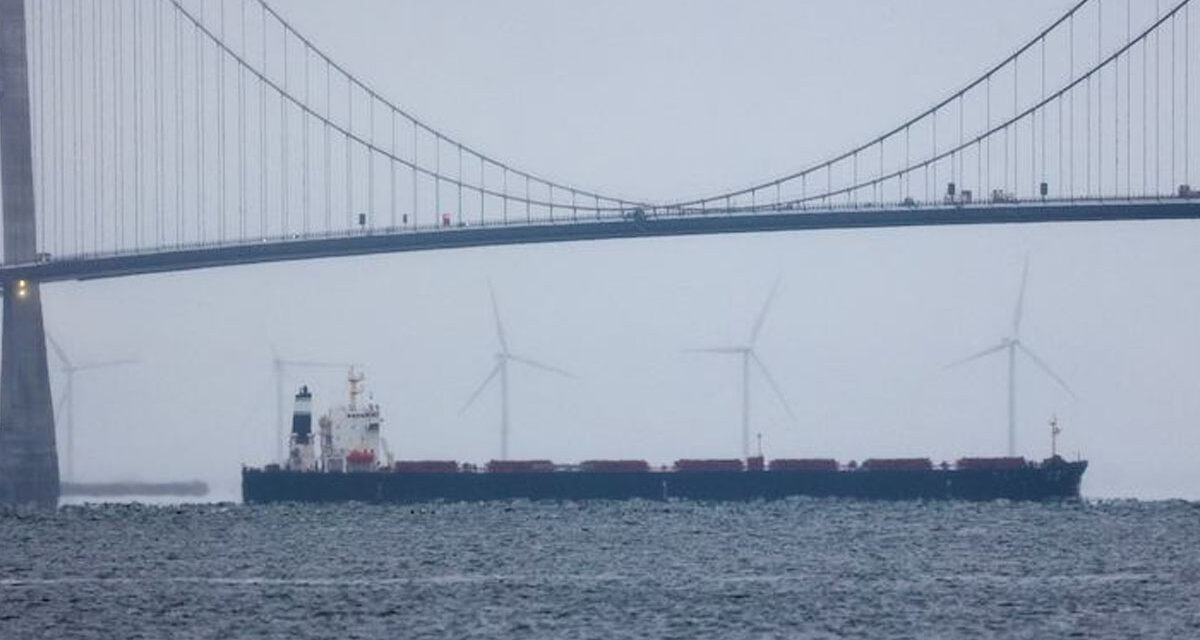
Chinese Ship Allegedly Deliberately Dragged Its Anchor for 100 Miles to Cut Baltic Cable

Investigators allege that the Chinese bulk carrier Yi Peng 3 dragged its anchor for over 100 miles along the Baltic Sea, deliberately severing two critical undersea cables. These cables, which link European nations, are vital to maintaining uninterrupted communications and digital infrastructure. If the allegations are confirmed, this act could mark a dangerous escalation in geopolitical tensions and expose the fragility of the global systems that power our daily lives.
The Incident: A Suspicious Course of Events
The Yi Peng 3, a 225-meter-long vessel carrying Russian fertilizer, is now at the center of an international probe into what authorities suspect was an intentional attack on Europe’s undersea infrastructure. On November 17-18, two critical data cables—one connecting Sweden to Lithuania and the other linking Finland to Germany—were severed. According to investigators, the ship’s anchor was intentionally deployed and dragged along the seabed, cutting through the cables.
Evidence from satellite data shows that the ship’s transponder, which records its movements, was turned off during the operation. This is known in maritime terms as a “dark incident,” a tactic that raises immediate suspicions. Investigators found damage on the ship’s anchor and hull consistent with dragging, leading them to conclude that the event was no accident.
“Given the mild weather conditions and manageable wave heights, the likelihood of accidental anchor dragging appears minimal,” noted an analysis prepared for The Wall Street Journal by Kpler, a company specializing in international shipping analytics. The deliberate nature of the act is further supported by the ship’s suspicious behavior. After the second cable was cut, the Yi Peng 3 began zigzagging, raised its anchor, and changed course—actions that align more with sabotage than with routine navigation.
Who’s Responsible?
Investigators are now questioning whether the ship’s captain, a Chinese national, acted under pressure from Russian intelligence. The Yi Peng 3 had recently shifted its operations from Chinese to Russian waters, a move that raises questions about its sudden involvement in the Baltic region. Since departing from the Russian port of Ust-Luga on November 15, the vessel’s movements have drawn increasing scrutiny.
“It’s extremely unlikely that the captain would not have noticed that his ship dropped and dragged its anchor, losing speed for hours and cutting cables on the way,” a senior European investigator stated. This has led authorities to suspect Russian involvement, possibly orchestrated to destabilize European nations by targeting their critical infrastructure.
China, for its part, denies any state-level involvement. “I would like to reiterate China’s consistent support working with all countries to maintain the security of international submarine cables and other infrastructure in accordance with international law,” said Chinese Foreign Ministry spokesperson Mao Ning. Meanwhile, the Kremlin dismissed the allegations as “absurd” and accused Western nations of hypocrisy for their silence over other incidents, including the Nord Stream pipeline sabotage in 2022.
The Fragility of Undersea Infrastructure
This incident shines a harsh spotlight on the fragility of undersea cables, which are essential to global communications, financial transactions, and internet connectivity. Every day, these cables carry trillions of dollars’ in transactional data and connect billions of people. Yet, they are largely unprotected, lying exposed on the ocean floor, vulnerable to accidental damage or intentional sabotage.
The deliberate severing of these cables disrupted operations in Europe, affecting both government and private sector communications. While the cables have since been repaired, the ease with which they were targeted raises serious questions about their security. Unlike pipelines or land-based infrastructure, undersea cables lack robust defensive measures, making them an appealing target for those looking to destabilize nations without triggering outright conflict.
This vulnerability is not new but is becoming increasingly exploited. In October 2023, another Chinese-registered vessel, Newnew Polar Bear, was linked to damage to the Balticconnector gas pipeline and an undersea communication cable. Investigators found a large anchor near the site, matching damage to the cable, and Russian sailors were reportedly aboard the vessel during the incident.
Legal and Geopolitical Implications
The Yi Peng 3 currently remains anchored in the Kattegat Strait, under the watchful eyes of NATO warships from Denmark, Germany, and Sweden. However, under international maritime law, NATO ships cannot force the vessel into a European port for further investigation. This legal gray area complicates efforts to hold those responsible accountable and exposes the challenges of enforcing international law in cases of covert sabotage.
Swedish Prime Minister Ulf Kristersson emphasized the need for clarity and cooperation, saying, “Today I can tell you that we have additionally sent a formal request to work together with Swedish authorities to get clarity about what has happened. We expect China will choose to work together as we have requested.”
Despite calls for cooperation, Sweden and its allies are treading carefully. Without definitive proof of sabotage, they risk escalating tensions unnecessarily. Yet, the pattern of incidents involving undersea cables, pipelines, and other infrastructure strongly suggests that these are not isolated accidents but part of a broader strategy. “Now we are careful about not accusing anybody right now of anything,” Kristersson added. “But we are investigating the matter very carefully.”
ACZ Editor: This was a clear message from Russia and China that this part of our infrastructure is vulnerable, and they can take it out at any time. And make no mistake, Russia does not “pressure” Chinese ships without the express permission of the Chinese government. In this case, Xi would certainly have been informed.




























Well the US deliberately blew up the Nord Steam pipeline, so what do people expect? The whole take over of the Ukraine with the Maidan coup in 2014 was totally illegal. That did not happen without huge secret bribes by the US. Do people really expect Russia to do nothing while we slowly take over all the Warsaw Pact countries, and violate all our treaties with Russia?
Hey Ivan, what is your proof of anything you claim?
Sure Tom: “ACZ Editor: This was a clear message from Russia and China that this part of our infrastructure is vulnerable, and they can take it out at any time. And make no mistake, Russia does not “pressure” Chinese ships without the express permission of the Chinese government. In this case, Xi would certainly have been informed.”
Remember, believe Putin before you believe in America, that’s our way now.
Fact is all is ALLEGED but looks like a crime perpetrated by the ship’s captain, purposely given 100 miles of dragging across two cables. It’s expected that Russia orchestrated, and of course, I agree China has to give the OK. But the ship is detained, losing money, and the investigation will complete.
So much for no wars post Trump. Or maybe only 60 shopping days left under Biden so Russia, China, all emboldened but will stop on January 20th, magically with the Ukraine War already over as Trump promises.
Well I was just wanting some proof about the things he said about the US.
The CCP (China government) has much to say in the affairs of the PLAN (Chinese navy) But when it comes to commercial vessels, their say is not nearly as much. They may own 5% of the company by law, and they may have a seat on the company’s BOD but ordering a cargo vessel to drop anchor and drag for 100 nautical miles just isn’t their usual way. They have much better ways of doing things. I could believe it is a rogue captain, or someone in control of the ship, that may be a Russian asset.
A check of the ownership of the Yi Peng 3 is Ningbo Yipeng Shipping. Ningbo Yipeng Shipping does not show up as being owned by the Chinese government which currently owns 217 vessels according to * https://magicport.ai/owners-managers/china/china-govt#owned*
This would be a big sloppy embarrassment to Beijing. Besides, Germany is their largest trading partner. Screwing up communications with Germany would also affect Beijing. Nope, this sounds like a rogue captain or other ship’s crew officer that has become a Russian asset.
May be Trump should demand answers!
Oh, that right, he is NOT president yet.
So when will Biden ask for answers?
NEVER, he and this administration are still under a Chinese contract!
From Balloons in the sky to Anchors under the sea, he has to
keep his Boss happy!
Darren, use your brains. Why would Trump or Biden get involved at all. This is a European affair and will stay that way. Your twisting of the facts to suit your conspiracy theory about an outgoing president is poor taste, even for you. The cargo ship in question was not owned by the Chinese government. See my answer to Frank above.
Winnie the Xi AND Vlad would be getting a substantial repair bill.